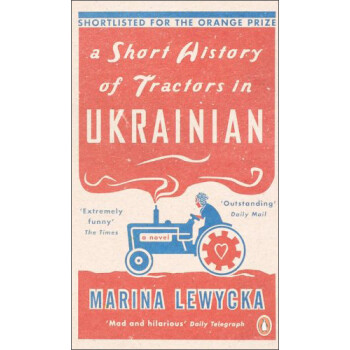

Alongside this fairly straightforward plot, Lewycka works in chapters from Nikolai’s book on the development of the tractor, as well as Nadia’s gradual excavation of her family’s deeply buried history through her renewed (but still difficult) relationship with Vera. From there, the novel traces the sisters’ persistently foiled attempts to get Valentina deported.

Nadia’s reaction to the May-December marriage, and to Valentina, her father’s vicious, gold-digging new dish, is vehemently negative - so negative, in fact, that she is compelled to dial up her estranged older sister, Vera, to whom she has not spoken since their mother’s death. Nadia’s father, Nikolai Mayevskyj, a first-generation Ukrainian immigrant, is marrying a 36-year-old Ukrainian divorcée with one very prodigious bosom and a taste for fur coats, stilettos, and multiple unnecessary and overexpensive automobiles. This information is not such a big deal until the marriage’s circumstances are more fully revealed. Set in contemporary Great Britain, the novel begins as our narrator, Nadezhda (more frequently referred to as Nadia), finds out that her 84-year-old father is getting remarried, just two years after her mother passed away. That said, Marina Lewycka’s debut novel is neatly crafted and singular, its memorable and endearing characters living on well beyond their short-lived collision. A Short History of Tractors in Ukrainian, which made last year’s Booker Prize long-list and Orange Prize shortlist, is a well-mixed family tragicomedy that, in spite or perhaps because of its prodigious zip, could have benefited from a substantial cut in its midsection.


 0 kommentar(er)
0 kommentar(er)
